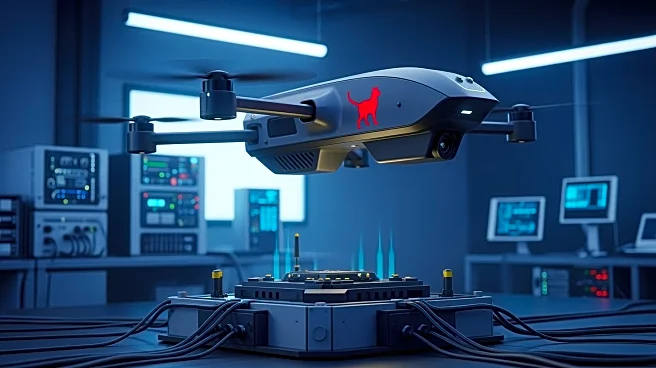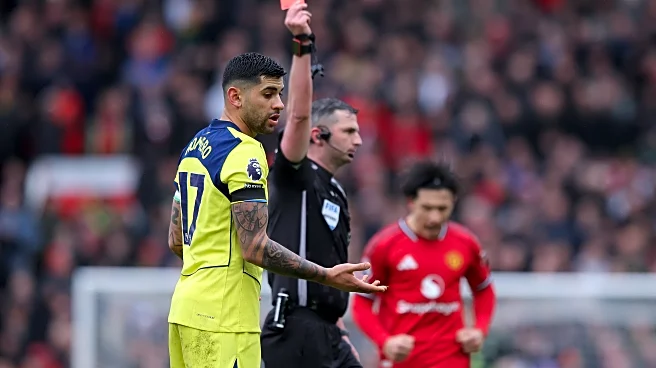What's Happening?
Red Cat Holdings, a company specializing in aerial intelligence and situational awareness technologies, has entered into a Memorandum of Agreement with Apium Swarm Robotics. This partnership aims to advance
autonomous swarming capabilities for tactical drones used in defense operations. Apium will join the Red Cat Futures Initiative, a consortium focused on developing advanced uncrewed aircraft systems for military use. The initiative aligns with the Department of Defense's priority to deploy affordable autonomous platforms. Apium's technology, which is compatible with various control systems, will be integrated into Red Cat's Family of Systems, enhancing the swarming capabilities of drones like the Black Widow™ platform. This collaboration follows successful demonstrations of Apium's technology on Red Cat's Teal 2 drone, showcasing decentralized, scalable drone swarming for military applications.
Why It's Important?
The partnership between Red Cat and Apium Swarm Robotics represents a significant advancement in military drone technology. By enhancing autonomous swarming capabilities, the collaboration aims to provide the U.S. military with more effective and resilient tactical drones. This development could lead to improved situational awareness and operational efficiency in complex environments, reducing the need for constant operator control and communication links. The integration of Apium's technology into Red Cat's systems may offer the military a strategic advantage, allowing for adaptive and resilient drone operations even in contested areas. This could potentially transform military tactics and strategies, emphasizing the importance of autonomous systems in modern warfare.
What's Next?
The collaboration is expected to continue with further integration of Apium's swarm-enabled autonomy across Red Cat's platforms. As the partnership progresses, additional demonstrations and field tests may be conducted to refine the technology and ensure its effectiveness in real-world scenarios. The success of this initiative could lead to broader adoption of autonomous swarming drones within the military, influencing future defense procurement and operational strategies. Stakeholders, including military leaders and defense contractors, will likely monitor the outcomes closely to assess the potential impact on military capabilities and readiness.
Beyond the Headlines
The partnership between Red Cat and Apium Swarm Robotics could have broader implications beyond military applications. The advancements in autonomous swarming technology may influence other sectors, such as public safety, emergency response, and environmental monitoring. The ability to deploy drones with minimal operator intervention could enhance efficiency and effectiveness in various civilian operations. Additionally, the ethical considerations of autonomous warfare, including decision-making and accountability, may become more prominent as these technologies are integrated into military strategies.











